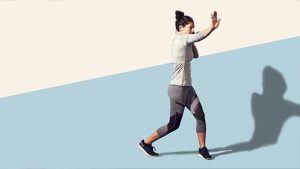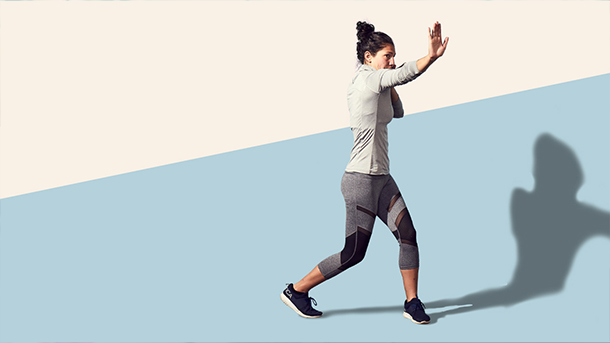Diabetes is a growing health concern around the world, with an estimated 463 million people living with the disease in 2019, and this number is expected to rise to 700 million by 2045. Diabetes is a chronic condition that affects the way the body processes blood sugar, and if left untreated, it can lead to serious complications such as heart disease, stroke, kidney failure, and blindness.
The rise in diabetes can be attributed to a number of factors, including an increase in obesity and sedentary lifestyles. Poor diet choices, such as consuming too much sugar and processed foods, can also contribute to the development of diabetes.

Mary Mouser is best known for her role as Sam LaRusso on Netflix’s “Cobra Kai.” A lesser known fact about her is that she was diagnosed with type 1 diabetes (T1D) at 13 years old. At first, she feared it would hold her back from achieving her dream of acting, but she eventually proved herself wrong and learned that she could do everything she aspired to do while living with the condition. Below, the actress opens up about what it’s like to live with diabetes and manage her health alongside a career in the spotlight. *This interview has been edited for length and clarity.
Q: What was the diabetes diagnostic process like for you, especially as a young person?
A: I was diagnosed [with type 1 diabetes] about a month after my 13th birthday, which I vividly remember because at the time I really wanted to remember 13. I thought of cool things I could do, like getting my ears pierced for the first time. I’ll never forget 13 now. Before I was diagnosed, I had been showing a lot of symptoms. I felt like I had a cold off and on for 6 weeks straight. I had been peeing nonstop. I was thirsty all the time. I was irritable. I was having headaches … all the hallmark symptoms. [But] I didn’t know a lot of people with type 1 diabetes, so we didn’t really know what to look out for. The doctor kept recommending tests, but I was terrified of needles. After five back-to-back visits, my mom mentioned that I was downing bottles of water. That’s when the doctor decided to test my blood sugar, and it was sky high.
Q: Tell us about your experience managing diabetes, especially while working on camera.
A: When I was first diagnosed, I had a very big, very intense moment of, “Holy crap, I don’t think I can do the thing I want to do for the rest of my life with diabetes.” I identified and lived with that fear for a hot second. Luckily, I have a wonderful support team who told me that was absolutely preposterous and that we’d figure it out. Over the years, I’ve learned a lot about my body and how to take care of it. I’ve also learned a lot about diabetes itself and how to learn from it and change with it to the best of my ability. The Tandem pump has been a huge help. (I didn’t originally have the Tandem pump –– I had a pump that felt a lot bulkier and harder to disguise, which is a lot of what I have to worry about on camera.) It’s taken such a load off my mind –– it feels like my little invisible partner alongside me, helping me tackle what sometimes seems like a rather large beast. I just let the designers know so they can work around with costumes and stuff on set. I’ve also integrated the continuous glucose monitor (CGM). That was the one I held off on because I was really nervous about the idea of a really big needle, or what felt like a needle, in me all the time. It freaked me out. I like to have a lot of information about things, then, once I do, it feels far less scary.

Q: As someone who lives with T1D and stars in the karate-themed Netflix series “Cobra Kai,” what has your relationship to exercise been like?
A: Since my diagnosis, I’ve learned how important exercise is for managing my diabetes. Physical activity and exercise have become something that makes me feel empowered, healthier, and more in control. I kind of joke that I was allergic to exercise before my diagnosis and was very anti-anything that involved working up a sweat.
Q: Do you have any words of support or hope for fellow people living with diabetes?
A: My experience has taught me that you can do absolutely anything and also be a type 1 diabetic. It has added grit, bravery, and strength to all the things I do in life. I feel confident and powerful when it comes to doing karate on the show. I love speaking out and saying that if my experience could help one person know that they can do it too, that would mean the world to me. I was truly the most uncoordinated, unskillful stunt person you’ve ever met, but now I can decently hold my own.
Navigating with diabetes can be challenging, but with the right tools and knowledge, it is possible to manage the disease and maintain a healthy lifestyle. The key to managing diabetes is to keep blood sugar levels under control, and this can be achieved through a combination of healthy eating, regular exercise, and medication (if prescribed by a doctor).
A healthy diet for people with diabetes should include a balance of carbohydrates, proteins, and healthy fats. Carbohydrates should come from fruits, vegetables, whole grains, and legumes. Proteins should come from lean meats, fish, and plant-based sources such as beans and tofu. Fats should come from sources such as nuts, seeds, avocado, and olive oil. It’s important to limit the intake of saturated and trans fats, added sugars, and sodium in diet.
Regular exercise is also crucial for managing diabetes. Physical activity can help lower blood sugar levels, improve insulin sensitivity, and promote weight loss. Aim for at least 30 minutes of moderate-intensity exercise, such as brisk walking, cycling, or swimming, every day. It’s also important to talk with a doctor or a diabetes educator before starting an exercise program.
Medication, if prescribed by a doctor, can also play a role in managing diabetes. There are several types of diabetes medications available, including insulin, sulfonylureas, DPP-4 inhibitors, GLP-1 receptor agonists, and SGLT2 inhibitors. Each medication works in a different way, so it’s important to work with a healthcare professional to find the right one for you.
In addition to these management strategies, regular check-ups with a healthcare professional are important to monitor diabetes and catch any complications early. It’s also important to be aware of the signs and symptoms of diabetes, such as frequent urination, increased thirst, blurred vision, and slow-healing wounds.
In conclusion, diabetes is a serious and growing health concern, but with the right tools and knowledge, it is possible to manage the disease and maintain a healthy lifestyle. A healthy diet, regular exercise, and medication (if prescribed by a doctor) are key to controlling blood sugar levels and preventing complications. Regular check-ups with a healthcare professional, and being aware of the signs and symptoms of diabetes, are also important for managing the disease.
Learning Self Defense
Self defense is an important skill that can provide numerous benefits for individuals of all ages and abilities. Not only can it help protect you in potentially dangerous situations, but it can also improve your physical and mental well-being. 
One of the most obvious benefits of self defense is the ability to protect yourself and those around you from harm. Whether it is defending against a physical attack, preventing a potential abduction, or protecting your home and property, self defense can give you the skills and confidence to handle these situations.
In addition to physical protection, self defense can also improve your overall physical fitness. Many self defense techniques involve using your body in ways that can improve strength, flexibility, and endurance. Training in self defense can also increase coordination and balance, which can be beneficial for preventing falls and injuries.
Self defense training can also have a positive impact on mental health. Learning self defense can boost self-confidence and self-esteem, as well as reduce anxiety and stress. The sense of empowerment that comes with knowing how to defend oneself can also improve overall mood and well-being.
Another benefit of self defense is the ability to develop discipline and focus. Self defense training requires intense concentration and attention to detail, which can help improve overall focus and concentration. This skill can be beneficial for individuals in many aspects of life, including school, work, and personal relationships.
Self defense classes can also provide a sense of community and camaraderie. Training with others who are working towards similar goals can be a great way to make new friends and bond with others who share your interests. This social aspect of self defense can be particularly beneficial for individuals who may be feeling isolated or lonely.
Finally, self defense can be a fun and enjoyable way to stay active and engaged. Whether you are a beginner or an advanced practitioner, self defense offers a diverse range of techniques and training methods that can keep things interesting and challenging.
In conclusion, self defense is a valuable skill that can provide numerous benefits for individuals of all ages and abilities. From physical protection to improved physical and mental well-being, self defense training can help individuals feel more confident, empowered and ready to face the world. It’s a great way to stay active, engaged, and develop discipline and focus. If you’re looking for a way to improve your overall well-being, consider taking a self defense class or training program.










